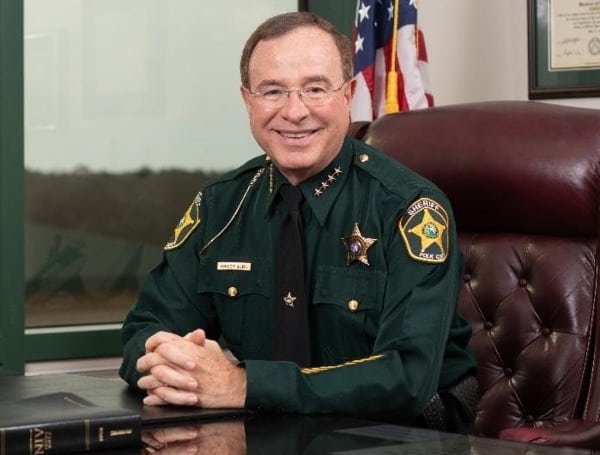By: Grady Judd, Sheriff Polk County, Florida
Police professionals support and welcome real police reform. Why is Congress missing a huge opportunity to change and improve police culture in America? The current federal police reform bill includes a laundry list of fragmented proposals designed to create political talking points, not a genuine attempt to fix problem policing where it exists.
There is a big lie being told in the police reform debate: “qualified immunity means that bad cops are immune from civil lawsuits.” That’s flat out nonsense. Just look at the thousands of lawsuits and millions of dollars a year paid out to civil litigants over alleged police misconduct.
Qualified immunity simply means that if a police officer is doing his or her job, following their police agency’s policies, and following the law, the officer is not civilly liable in a federal civil rights case for their well-intended actions that were objectively reasonable.
Do members of Congress understand that people already have access to state and federal courts to hold police officers accountable? Adding another opportunity for federal lawsuits is what I call the “Stuff the Lawyers’ Pockets Act.” Equating police accountability with more lawsuits is perverse. Blasting the door wide open for more lawsuits will only bankrupt cities and counties and penalize taxpayers.
The qualified immunity fake solution some in Congress are proposing does nothing to change bad police culture or provide a road map to improve police conduct and community relations. Add another layer of federal lawsuits and you will find even more police officers leaving the profession and many others afraid to do their job. The result is evident: Crime, and specifically violent crime, will increase more than it has because of these attacks on all police agencies for the bad conduct of a very few.
The real way to improve the quality of policing in America is to incentivize police agencies to become professionally accredited by state or nationally recognized professional accrediting bodies. I’m not talking about a one-size-fits-all set of mandates created by a federal agency under the influence of whatever political party is in power in the White House, and then forced on local and state agencies.
I’m talking about independent accrediting bodies professionally dedicated to police best practices. These accrediting bodies have established well founded systems and processes based on data and research designed to deliver professional community-based policing.
My agency maintains 10 state and national accreditations that include 1,487 best practice standards that we follow. The standards cover everything from use of force, to police pursuits, to serving warrants. We have external examiners who come in and certify that we have and are complying with these best practices.
When our agency started the accreditation process back in 1993, our existing policies were a mish-mash of legacy rules that were developed over many years of trial and error—they had never undergone an external review. We were a good agency, but we did not have a “gold-standard” set of state or nationally recognized policies based on best practices developed by professionals.
As we became accredited, we grew more professional, our community-centered customer service culture improved, and we focused on nationally recognized best practices to do our job. Accreditation provides a comprehensive systematic approach for agencies to improve their professionalism, culture, and effectiveness as a public safety agency. Accreditation works. It changes police culture for the better and it holds agencies accountable.
You wouldn’t send your child to an un-accredited college or to a non-accredited medical professional or hospital. Why in the world are we not insisting that our law enforcement agencies be accredited?
So here is a question: why do politicians want to insist on punishing cops and police agencies with another layer of lawsuits rather than give those agencies a professional system to improve and reform antiquated police culture? Let’s incentivize agencies towards professionalism, not penalize them through an avalanche of lawsuits.
I ask our federal lawmakers to forget about politics and talking points and work together with communities across our great nation to focus on something that has had a proven positive effect on the quality of policing in America: professional police accreditation.
Android Users, Click Here To Download The Free Press App And Never Miss A Story. It’s Free And Coming To Apple Users Soon.
Support journalism by clicking here to our gofundme or sign up for our free newsletter by clicking here
